Answering My Own Interview questions.
Much to my amazement and delight I have had a few replies but they have suggested that I answer my own questions first. So here they are:-
Which artists inspired you to paint? Which other artists do you admire?
"I was inspired to paint by Ann Mortimer, Trevor Waugh, Hazel Soan, John Blockley and Lucy Willis. Most of them continue to inspire me today, some not, as my tastes have changed.
I admire many others now too; Alvaro Castagnet, Keiko Tanabe, Joseph Zbukvic, Kanta Harusaki to name but a few.
Watercolour is said to be the hardest medium to work with. Why do you choose to paint with it?
"I think, because it IS known as the hardest...I like the challenge, I suppose. I have used lots of different mediums, and I've learnt a lot by trying them, but they lack the excitement of watercolour. It's unpredictability intrigues and fascinates me. The further I go on this journey of discovery the more I realise I am still so far from the end and strangely that's a comforting thought."
"I am currently using Bockingford, 140lb, rough, which I stretch onto marine ply boards. I have tried lots of other papers but it wasn't until I began teaching that I started to use Bockingford consistently. This has shown me what I had previously only known from reading - that every paper behaves in a different way. I have come to understand how Bockingford accepts washes now and am reluctant to move away from it as a result. However, as I seem to like a challenge I dare say I will at some point.
I was going to treat myself to a BIG Kolinsky sable round brush that cost £100 once, having read that they were "the best". I tested it with some water and hated that it did not spring back to shape, so I didn't buy it. I chose a sable/synthetic mix called Septre Gold. I find they have the ability to hold water like a sable but spring back to shape like a synthetic - perfect. Having tried pretty much every size and shape of brush available I settled on four. One big round, one medium round, one, 1cm synthetic flat and one rigger. I rarely use any others.
I use Artist Quality tubes of paint made by Winsor and Newton. I, like a lot of beginners, started off with a set of Student Quality paints - no wonder I gave up! They make an already difficult job even harder."
What is your preferred method for reserving the white of the paper? What are your views on the use of white paint or masking fluid?
"I use masking fluid to reserve small shapes that would be too tricky to paint around but I am not keen on it. It can stain the paper, it can rip the paper when you come to remove it and it leaves ugly hard lines that have to be softened. My aim in life is to paint without it.
I have splattered white paint to depict snow (see below) but I never use it for anything else. Ever! I hate to see it used in a watercolour. I am a bit of a purest, I think. I almost never mix media and when I have I don't look upon it as art - just a bit of fun. Don't quote me though, it is more than likely that I will change my mind about any or all of this in the future."
You paint lots of different subjects it seems whilst other artists stick to one. In your opinion is it a help or a hinderance to limit subject matter?
"Well, that's a good question (since I asked it myself!). ...I wrote this question having pondered why I had not continued to paint small studies of flowers as I had done when I started. I seem to randomly leap between subject matter and wondered, if I had stuck to just one, might I have become brilliant at it? I think the answer is that I am continually looking for the next challenge and that it is not the subject matter that intrigues me but the play of light over it, so pretty much any subject with light on it will do."
Oil paintings have always demanded a higher price than watercolour paintings and art galleries seem to favour oils. What are your thoughts on this and do you feel this will change in the future?
"I hope so because I have never understood why this should be. Oils take a long time to paint but much of this time is spent waiting for it to dry. Watercolours can be quick to paint but the time is spent beforehand, in the planning, as no alterations can be successfully rendered once it is finished. Plus, of course, a watercolour has to be framed behind glass, meaning extra expense, whereas an oil can be hung without a frame."
"What a good idea, Eleanor! (Sorry, getting carried away answering my own questions!)
I would choose three cool, transparent, pure primary colours so it would be possible to mix every colour desired from these. They are (all Winsor and Newton) Winsor Blue (green shade), Permanent Rose and Winsor Lemon. All three are also staining, so would work perfectly in my preferred method of working ie: slowly building up glazes of colour each modifying the previous wash in tone, colour and/or intensity. To these I would add three warm, muted primaries. French Ultramarine, Burnt Sienna and Raw Sienna. All three would lift making them perfect for creating soft highlights and all three granulate, perfect for producing texture in brickwork etc, which I love."
I find social media sites take up too much time when I could be painting. What benefits have you gained by using social media sites and have you experienced any drawbacks?
"The drawbacks and benefits go hand in hand so it is impossible to separate them. The time spent on them is "wasted" in that I am not using it to paint but also beneficial as I am meeting other artists, keeping in touch with people who are interested in what I do and being exposed to fresh ideas. Painting is a solitary business and I missed the interaction and feed back I got from social media sites when I left them last year."
Are you a full time artist? If not what other job(s) do you have? Do you find it difficult to find time to paint?
"Yes, I am now. I had a part-time job which I recently gave up so I could paint more. I have been busier since giving up work than I was before. It's never a problem to find something to do, is it! Another artist once said that she "would dust the tops of light bulbs" before starting a painting. I find myself procrastinating all the time. Why do we do that? Deliberately prevent ourselves from doing something we love."
"Trying to achieve economy of execution. To simplify. As with words, reducing something down to its essence means it becomes far more potent than excessive use of adjectives. I want to explore how little I can get away with painting detail without losing the subject matter of the image in background washes. I am also fascinated by how the same scene can change if the colours, tonal pattern or format etc change, so I plan to experiment more in this way. So many ideas, so little time."
Watercolour painting is full of "rules". What rules, if any, do you break?
"I prefer to think of them as "guidelines" - otherwise the rebel in me would break all of them in every painting. I think that they are very useful when you start out. When you become more aware of why they are guidelines then you're ready to break free from them and experiment. By experimenting we learn and find our own style. I do not intentionally create back runs, for example, I love them in other peoples watercolours, they just don't sit well with my (current) style."
If you could only give one piece of advise for people new to watercolour what would it be?
"I could never give just one, no! That's why I started this blog, I've got lots to say about watercolour, because I am passionate about it, and passing any knowledge I have on the subject to anyone that will listen."
Have I missed anything?
"No, Eleanor, you've covered everything. Very well done. Have a cup of tea now."
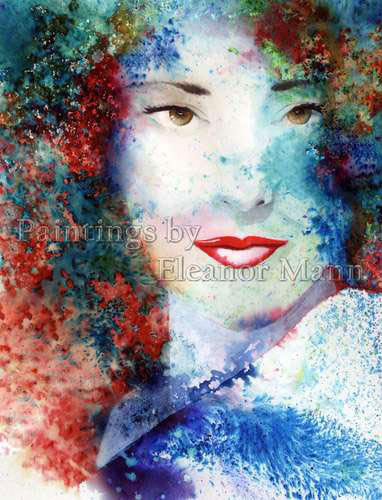
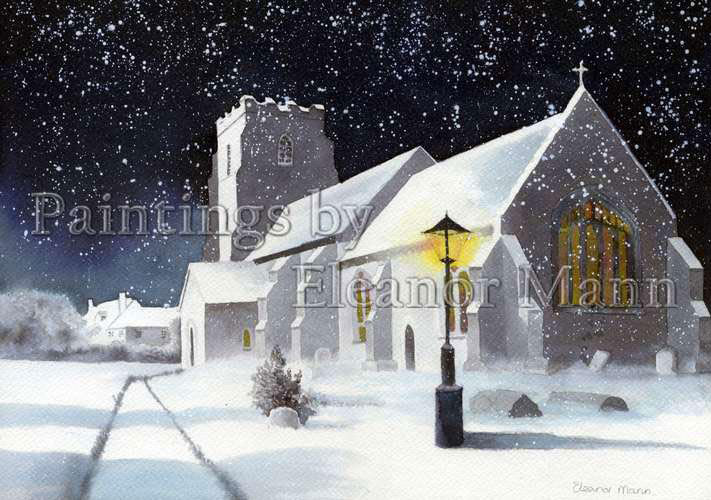
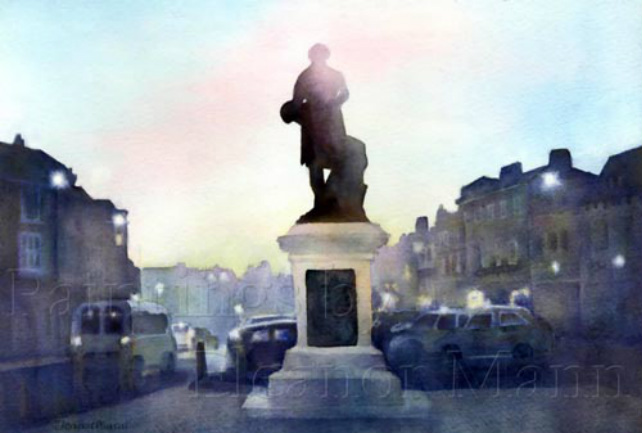
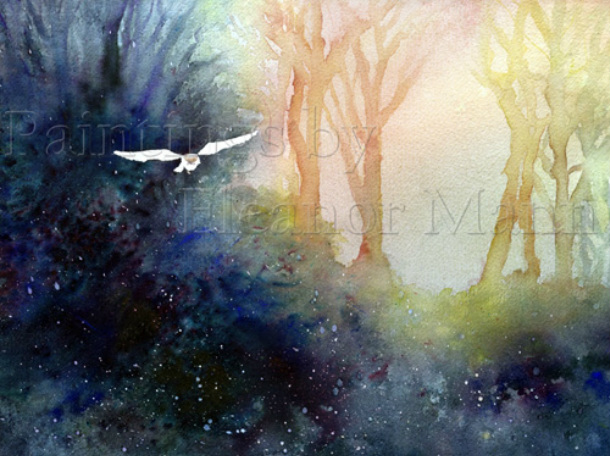
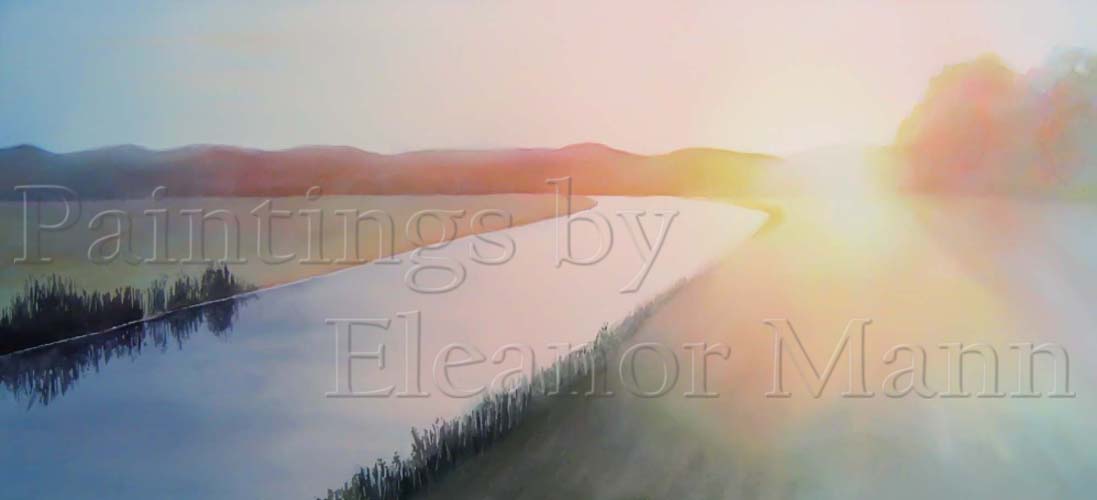
 RSS Feed
RSS Feed